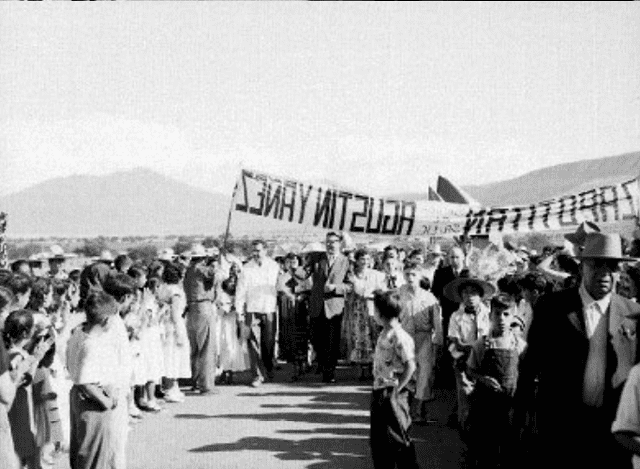Agustín Yáñez: a tireless reader and indefatigable fighter for education
Agustín Yáñez (1904-1980) is one of Mexico's most prolific and best writers due to the variety of genres he cultivates and the richness and splendor of his prose. He is a member of the National College and the Mexican Academy of Language.

Agustín Yáñez was born on May 4, 1904 in the Santuario neighborhood in Guadalajara, Jalisco. He studied law at the School of Jurisprudence of Guadalajara and Philosophy at the Faculty of Philosophy and Letters of the UNAM. From the age of 19, he starts teaching in several institutions and occupies important educational positions in Guadalajara, Nayarit, and Mexico City. Between 1953 and 1957 he was governor of the State of Jalisco.
From 1964 to 1970 he was Secretary of Public Education; in this position, he developed new educational instruments, created the telesecundaria system ("tele-secondary"), and his literacy campaign was internationally recognized for the decrease in illiteracy, increased the educational budget, promoted higher secondary education, the National Polytechnic Institute, and founded the Vocational Guidance Service, among many other actions.
Agustín Yáñez is a tireless reader and activist for education in Mexico. His literary career stands out for being aware of the most advanced currents of the novel of the time; he learns from William Faulkner, James Joyce, and John Dos Passos and for his philosophical formation that gives his work a unique depth. His texts are characterized by their realism and he became the precursor of the contemporary Mexican novel.
Agustín Yáñez is the author of a vast body of work, including short stories, novels, literary and philosophical essays, prologues and biographies. His books include Al filo del agua, La creación, La tierra pródiga, Ojerosa y pintada and Las vueltas del tiempo; he participated in the script and plot of the film "Peregrina" directed by Chano Urueta.
"The dedication of the sciences, letters, and arts, participates in a certain condition of heroism and is the leaven of knowledge, sensitivity, and conscience of the people." - Agustín Yáñez's famous phrase.

His novel Al filo del agua ("At the Water's Edge") is one of the most beautiful and important Mexican narrative texts of the 20th century. In it, Yáñez tackles one of the favorite scenarios of Mexican literature: a mournful town, set in a provincial place where it seems that nothing happens while everything is a revolution all around. In it, everything ends up being a mirror: living against ghosts, words against silence, lands against deserted wastelands.
He is a member of the Seminario de Cultura Mexicana, the Academia Mexicana de la Lengua, El Colegio Nacional and in 1973 he received the Premio Nacional de Letras. He died on January 17, 1980, at the age of 76 and his remains are in the Rotunda of Illustrious Persons.




